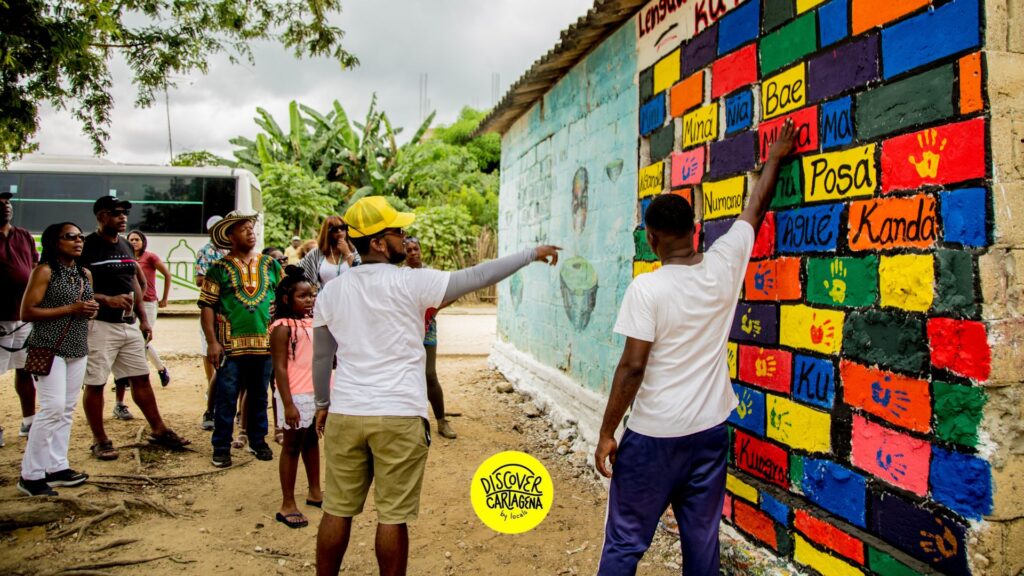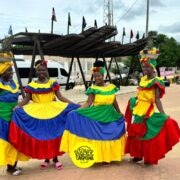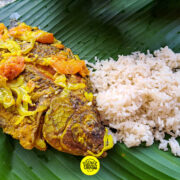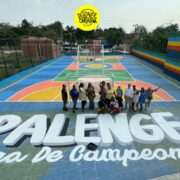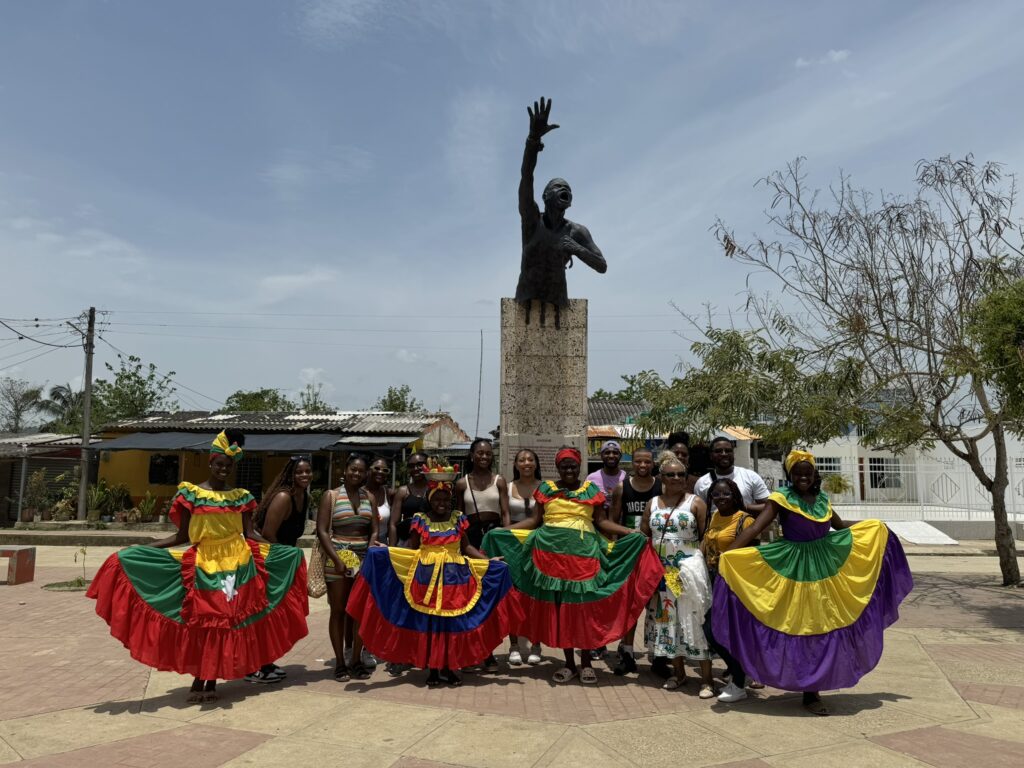
The Role of Women in San Basilio de Palenque
In the vibrant community of San Basilio de Palenque, women play a vital role in shaping gender ideology. Despite facing various challenges, the resilient palenqueras empower themselves and others through ethno-education, preserving the rich African customs and essence that define their identity.
Multifaceted and Essential
The palenquera woman embodies more than just traditional roles like midwifery, spiritual guidance, healing, and education. She is also a relentless advocate for her family’s survival, symbolizing empowerment, resilience, and unwavering perseverance.
The Transcendental Role of Palenquera Women in History
In the era of slavery, Palenquera women were pivotal in the emancipation of San Basilio de Palenque. Their resourcefulness and limited oversight from their masters enabled them to craft escape plans, ingeniously utilizing braids in their hair to denote escape routes, thus aiding in the establishment of the initial palenques.
Since colonial times, the Palenque woman has served as a cornerstone of society, showcasing remarkable ingenuity and survival prowess. She ingeniously utilized her hair’s texture to weave braids, which doubled as maps leading to various Palenques in the area. These braids served multiple purposes, enabling the transportation of gold, which was bartered for food from indigenous communities en route to Palenque. Furthermore, she carried seeds that were later cultivated, becoming the primary sustenance for maroon communities.
At the heart of the family unit, the palenquera woman shoulders the primary responsibility of instilling values that fortify society. Through diligent effort and unwavering dedication, she educates her children while earning a livelihood by selling traditional sweets. Using local fruits such as coconut, papaya, guava, and pineapple, she crafts the renowned cocadas, which she markets both locally and in various Colombian cities. This endeavor not only sustains her family but also funds her children’s education. Indeed, many professionals hailing from San Basilio de Palenque owe their academic pursuits to the hard work of their palenquera mothers.
Palenquera women have also made indelible contributions to music. Despite the drum being traditionally associated with men for centuries, Graciela Salgado shattered this stereotype by becoming the first woman in Colombian history to master the instrument. As a vital member of the second generation of the ensemble “Las Alegres Ambulancias,” she earned tributes and acclaim for her enriching influence on Afro-Colombian culture. Carrying on her mother’s legacy, her daughter, known as “La Brugó,” propagated palenquera culture worldwide through her musical endeavors. Together with “Las Alegres Ambulancias,” they have proudly represented their community across various countries, including Canada, the United States, Germany, Spain, England, and France.
Outstanding Palenquera Women in the World
Numerous Palenquera women have ventured beyond the confines of San Basilio de Palenque, making their mark on the global stage with the pride and determination characteristic of their community. Concurrently, female political activism has heralded significant ideological, political, and social transformations, narrowing the gender gap and broadening access to employment and opportunities previously denied to women.
Cha Dorina Hernández
Born on July 22, 1966 in Cartagena, Colombia, this passionate about education has charted an impressive academic path. Her mother was Lorenza Palomino, and her parents were Manuel Hernández, from San Basilio de Palenque. She graduated with a degree in Educational Administration in 1992 from the San Buenaventura University in Cartagena. Her commitment to educational improvement led her to obtain a Master’s Degree in Community Education in 2001 at the Universidad Pedagógica in Bogotá, where she expanded her understanding of educational dynamics. Her thirst for knowledge knew no limits: in 2019, she began her doctorate in Educational Sciences and Social Pedagogy in a collaboration between the University of Cartagena and the University of Granada, Spain. Furthermore, she demonstrated her dedication to her study by validating her eighth semester in History and Heritage at the University of Magdalena in 2022, thus showing her commitment to understanding cultural roots.
Cha Dorina Hernández made history as the inaugural palenquera to secure a seat in the Congress of the Republic. Garnering over 82,000 votes, she clinched a position in the House of Representatives for Bolívar, marking a significant stride in the political empowerment of the Palenque community.
Cha Dorina Hernández has over four decades dedicated to social, community, and educational endeavors, he actively contributed to the steps leading to UNESCO’s declaration of San Basilio de Palenque as a world heritage site.
Kandya Obezo Casseres
Taking on the role of Consul General of Colombia in Washington DC, Kandya Obezo Casseres emerged as a prominent representative and diplomatic envoy of the Palenque community on the international stage. Her appointment underscores the acknowledgment of Palenquera women’s talent and capability in assuming pivotal leadership positions globally.
Dolores Salina
Born in San Basilio de Palenque in 1933, Dolores Salinas rose to prominence by showcasing her original compositions alongside Las Alegres Ambulancias. It was her creative ingenuity that coined the group’s name, drawing inspiration from her commitment to preserving Palenque’s funeral songs. Renowned for her humor and resonant voice, she later embarked on multiple tours across Europe and Canada with the band, enriching audiences worldwide.
Dolores crafted the iconic anthem “Maldita Vieja” for the Cartagena Independence Festival.
Concepción Hernandez
Hailing from Palenque de San Basilio in 1944, she is celebrated as a natural educator of Palenque’s spirituality and religious customs, revered as the foremost authority on prayer within the community. Since 1988, she has actively spearheaded efforts to fortify the Palenquero language, Lumbalú rituals, the translation of Mass into Palenquero, and other funeral and cultural traditions of Palenque. Her contributions have garnered numerous accolades, including the Manuel Zapata Parchment of Merit Mention, the Benkos Rey Cimarrón Parchment from the Cabildo Benkos Biohó Foundation, and recognition from the Ministry of Culture for her dedicated efforts in enriching the ancestral culture of Black, Raizales, Palenqueras, and Afro-Colombian communities. She co-founded the Ethno Education Process in San Basilio de Palenque.
"Seño" Concepción Hernandez, orgullosa junto a sus hijos recibiendo reconocimiento @moisomedrano @mincultura pic.twitter.com/vmW8HxLv9C
— FestiTambor Palenque (@FestiTambor) October 13, 2014
Rosalina Cañate Pardo
Rosalina, one of the oldest prayer members of this town, is a living example of the survival of the African heritage. Known as the healer of Palenque, she uses traditional medicine, a legacy of her African ancestors, as her main tool to heal both the body and soul of the Palenqueros.
Tomasa Reyes Liñán
Born in 1940, Tomasa Reyes Liñán traces her lineage to the Montes de María and the Sierra Nevada. Her heritage intertwines Palenquero ancestry from her father and Samaria descent from her mother. Today, she holds the distinction of being the sole surviving practitioner of the ancient art of midwifery in San Basilio de Palenque, Bolívar.
The ancient wisdom Tomasa has amassed since childhood harmoniously coexists with formal academic education and professional training in the healthcare domain. Indeed, she pursued nursing education to augment her expertise in medicine, aiming to merge traditional herbal remedies with contemporary medical methodologies to alleviate suffering. She acknowledges that both traditional and academic wisdom rely on natural resources, such as medicinal plants, massage, and breathing techniques, among others. Both paradigms converge in broadening their scope and prioritizing the holistic well-being of individuals.
It’s noteworthy to mention that the art of Midwifery, encompassing its knowledge, skills, and practices, has been recognized as intangible cultural heritage by UNESCO. Further details can be found here.
Celebrating the Legacy and Future of Palenquera Women
The significance of women in San Basilio de Palenque extends beyond temporal and spatial boundaries. Across generations, Palenquera women have served as foundational pillars in cultural preservation, champions of freedom, and architects of a more equitable and just future.
In the present day, as we gaze towards the horizon, we witness the remarkable brilliance of Cha Dorina Hernández and Kandya Obezo Casseres, two Palenque women whose exceptional accomplishments continue to inspire both current and forthcoming generations.
As we bid farewell, we do so with the assurance that the legacy of resilience, empowerment, and perseverance embodied by Palenquera women will persist in illuminating the path toward a world where all women can realize their fullest potential, and where their invaluable contributions to society are duly acknowledged and esteemed.
Long live the palenquera woman, source of strength, wisdom and hope!
The AUTHENTIC CARTAGENA PALENQUE TOUR EXPERIENCE!



